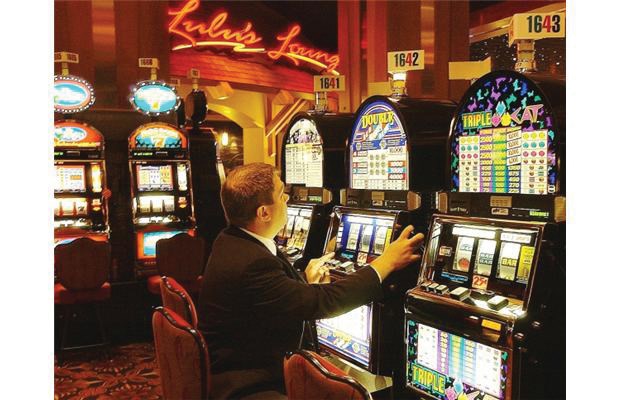Expenditures in millions:
By the end of this year, it’s anticipated the City of Richmond will have received close to $147 million, since 2004, from its provincially mandated 10 per cent cut in net revenues from the River Rock Casino and Resort. In 2014 alone, based on projections, the city is expected to have raked in a record $20 million.
Furthermore, the city will be sitting on close to $24 million in reserves and unallocated gaming revenue.
It begs the question: What will the city do with these bags of money and who makes that decision? You may want to have your say this municipal election.
The city has used the money mostly to fund its reserves and large, shiny capital projects, namely the Richmond Olympic Oval, two fire halls and the future Minoru pool and seniors centre. By year’s end, the Oval will account for 33 per cent ($50 million) of the total gaming expenditures since 2004, when River Rock opened. The city has spent another $39.1 million (26 per cent) on capital projects, including the Steveston and Cambie fire halls.
City council has already earmarked $5 million per year for the next 10 years to fund the new Minoru pool and seniors centre complex.
Other annual expenditures of $1.4 million include $600,000 for extra RCMP officers.
Logic is, the casino attracts crime. Indeed, CBC News recently reported $24 million worth of “suspicious” transactions happened at River Rock between March and June of this year. Transactions included large deposits and withdrawals, many of which consisted mostly of $20 bills, a common trait amongst drug deals and organized crime.
The city also annually earmarks casino money for community grants to ensure the facility provides a social benefit. In 2014, the city dished out $800,000 in community grants.
Grants and RCMP have accounted for 3.9 and three per cent, respectively, of total expenditures since 2004.
See a full breakdown of casino expenditures since 2004 by clicking here
According to city spokesman Ted Townsend, casino revenue has been used for one-time projects, so not to impact operating revenues and expenses.
As a result, casino money has allowed the city to build infrastructure other cities may not be able to build, without having to raise taxes or generate revenue elsewhere.
“If you put it into the operating budget, the easiest thing is government gets addicted to gaming, and it can’t live without it,” noted Mayor Malcolm Brodie.
However, the pot has become so large city councillors are asking staff to review how the funds have been distributed and what expenditures may be coming in the future.
“I think we need to have a discussion about what we’re going to do with the excess funds, to a certain extent,” said Brodie.
In 2002, the city reported gaming revenue of just $1.9 million, prior to the River Rock being built. The same report suggested it would receive up to $6 million annually from the future River Rock. That number quickly reached $7.5 million in 2004. As the casino expanded, revenue has increased each year since 2009.
In 2013, the city got $17.6 million. By comparison, Burnaby’s Villa Casino funded the City of Burnaby to the tune of $9.6 million, while Vancouver got $8.2 million for all of its gaming facilities.
Chuck Keeling, River Rock’s vice-president, said the casino’s growth is “more significant and appreciable” than any other gaming facility in B.C. Much of it has to do with increased premium play, particularly baccarat, which is popular among Chinese gamblers; the casino has the largest baccarat floor in Canada. Keeling noted hotel stays, conference meetings and theatre shows bolster revenues by bringing people into the casino for a roll of the dice.
Townsend noted the city makes conservative estimates on its gaming revenues and that the city is monitoring casino expansion in Downtown Vancouver as that may take away from Richmond’s cash cow. But Keeling didn’t seem too concerned.
“It’s difficult to answer but there’s already a casino there,” said Keeling. “The marketplace for gaming has gotten pretty crowded. …With that said we continue to grow at an appreciable growth rate,” he said.
So, to be conservative, suppose gaming revenue flattened out at $20 million annually for Richmond. In 2014, the city will make its last $5 million payment for the Oval. But even if this lump sum is transferred to Minoru, and the city continues its RCMP and grant payments at the same level, it leaves about $13.6 million of colourful Canadian cash leftover, annually. With $24 million already unallocated or in reserves, it would take just over five years to reach $100 million in savings. Perhaps another, complimentary Oval could be built? Or not.
While city council has not received a long-term forecast of capital expenditures, various projects have come up in meetings and conversations.
Brodie noted the arts community desires a new performing arts centre. The city also needs an expanded community centre in Steveston. City Centre will need another new community centre in the coming decade.
Outgoing councillors Linda Barnes and Evelina Halsey-Brandt both said more money should be spent on community grants and affordable housing.
Or will council want to squirrel money away for improving its dykes or improving its carbon footprint as ocean levels rise?
Of course, city politicians could also choose to dole the money out in the form of annual, one-time tax breaks. With about 67,000 households, each mailbox would receive $202 for every $13.6 million.
Have your say on Facebook.com/RichmondNews.
See a full breakdown of casino expenditures since 2004 by clicking here



